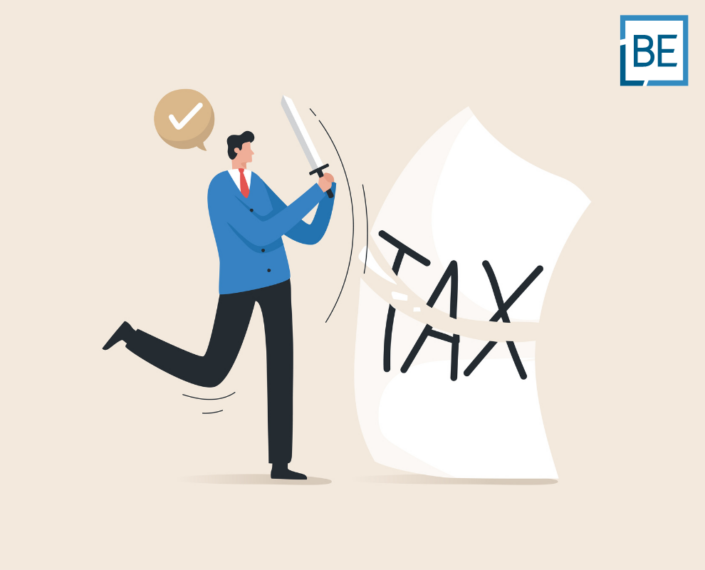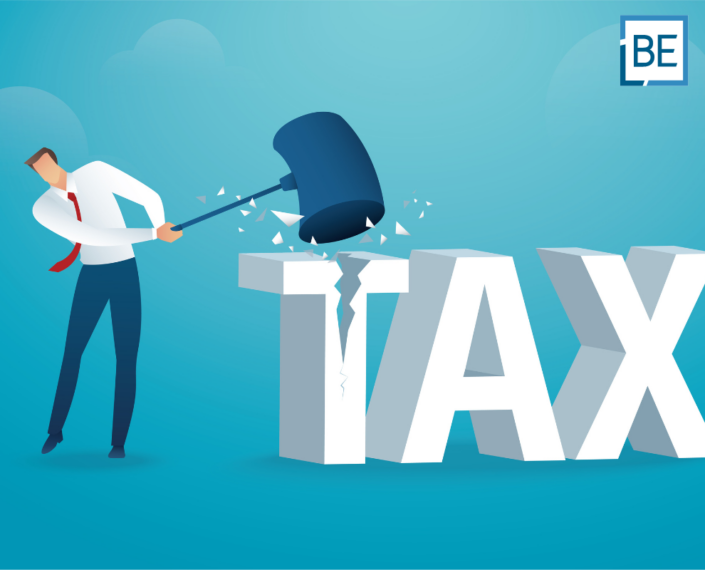Belaws Home ›› Thailand ›› Blog ›› Government To Reduce Alcohol Taxes
TAX
Thai Government To Reduce Alcohol Taxes
In an effort to revitalize its tourism sector and encourage economic growth, the Thai government has recently introduced plans for tax and customs duty reforms targeting alcohol and luxury food imports. These measures, including changes in excise taxes and duty exemptions are designed to make Thailand a more appealing destination for tourists and businesses.
Key points
- Import taxes on wine have been waived for 2024.
- The excise duties imposed on wine will be reduced, dropping from the current rate of 10% to 5%.
- The excise duties imposed on domestically produced spirits will be reduced to 0%
- Excise tax imposed on entertainment venues will be reduced to 5% of gross revenue.
Why have these Reductions Alcohol Taxes have Been Introduced?
Tourism is a significant part of the Thai economy, and in order to encourage the development of the tourism sector, the Thai government has unveiled plans for a set of measures to improve Thailand’s position as a premier tourist destination. The focus is on improving the quality and options of food and beverage establishments, in order to create a positive image, and encourage increased spending of both international and domestic tourists.
Read more:
What is the Reason for the High Tax for Alcoholic Beverages?
Historically, Thailand has imposed high taxes on alcohol, particularly on wine and locally brewed products, resulting in a very uncompetitive market. However, this is set to change in 2024. The government has announced plans to substantially reduce the tax placed on alcohol. These changes are part of a broader strategy to stimulate tourism and increase alcohol consumption by tourists.
These new regulations will not only benefit tourists but also residents of Thailand. More importantly, businesses that make alcohol or import wine for bars and restaurants stand to gain significantly from these changes. The reduction in taxes will likely lead to increased competitiveness and growth in the alcohol industry in Thailand.
Tax Reduction on Wines and Spirits
A key reform is reducing the excise tax on wines and fortified spirits. As part of the reforms, there will be a significant reduction in taxes placed on wines and spirits.
| Alcohol Category | Current Tax Rate | New Tax Rate for 2024 |
| Wine Import Duties | 54-60% | Exempt |
| Wine Tax | 10% | 5% |
| Domestic Spirits Tax | 10% | 0% |
| Entertainment Venues Tax | 10% | 5% |
The government has also lowered the excise tax on wines from 1,500 THB per litre of alcohol to 1,000 THB per litre, making wines more affordable and encouraging consumers to explore a broader range of products.
The government has also eliminated the price tier system, which previously imposed an additional 10% on the sale price for retail prices above 1,000 THB. Instead, a flat rate tax of 5% has been introduced.
Furthermore, in order to enhance international trade, Thailand has exempted duty on wine imports from all countries, removing the previous rates ranging from 54-60% for a period of 1 year. This move is particularly advantageous for well known wine producing countries without a free trade agreement with Thailand, such as Italy and France.
Reduction of Excise Tax on Entertainment Venues
The government has also reduced the excise tax on entertainment venues, including nightclubs, discos, bars, and cocktail lounges, to stimulate economic activity from 10% to 5%. This measure aims to incentivize the nightlife industry and attract domestic and international patrons. The lowered rate will remain applicable until Dec 31, 2024.
How will these reductions support Thai alcohol producers?
The new tax regulations on alcohol in Thailand are expected to have a significant impact on local alcohol producers:
Stimulating Domestic Production:
The Thai government’s decision to reduce the domestic alcohol tax to 0% is seen as an effort to encourage the domestic production of alcoholic beverages. This could potentially lead to an increase in the production and consumption of local alcoholic beverages.
Supporting Small-Scale Producers:
The excise tax on local liquor from small-scale producers has been reduced from 10% to zero, making it easier for them to compete in the market.
Promoting Competition:
Proposed amendments to Thailand’s Progressive Liquor Bill hope to promote competition and provide support for local producers. These changes could help create a more competitive and profitable alcohol sector.
How will these reductions support Foreign alcohol producers?
The new tax regulations in Thailand are expected to have a significant impact on foreign alcohol producers:
Reduction in Import Tariffs:
Import tariffs on wines, which currently stand at 54% and 60% of declared value, will be abolished indefinitely. This is expected to significantly reduce the cost of imported wines in Thailand.
Lower Excise Tax on Wine:
The excise tax on wine will also be lowered from 10% to 5% of its price. These tax cuts are expected to significantly reduce the cost of imported wines in Thailand making them more accessible to everyone.
Increased Consumption:
The new tax measures are expected to increase consumption as they will make imported alcohol more affordable. This could potentially lead to an increase in the demand for foreign-produced alcohol.
Increased Competitiveness:
The reduction in taxes will likely lead to increased competitiveness for foreign alcohol producers in the Thai market.
These changes are expected to provide a significant boost to foreign alcohol producers operating in Thailand. However, it’s important to note that these measures are temporary and currently will only last until the end of 2024.
What will happen after 2024 for the tax of alcohol?
The government has only recently announced the reduction in taxes for 2024, we are currently not sure of the future plans as it is too early. However, it could be possible that the tax reductions are only temporary but if the scheme proves to be successful, the government may extend the reductions or even permanently adopt them.
Why does Thailand have such a high tax on alcohol?
Thailand has typically imposed high taxes on alcohol for several reasons:
Public Health: High taxes on alcohol were implemented to combat alcoholism among Thailand’s youth and to reduce overall alcohol consumption.
Revenue Generation: The excise tax on alcoholic beverages has been a significant source of revenue for the Thai government. For the fiscal year 2023, the excise department collected a total of 177,596 million baht (US$5.19 million) in alcohol, beer, and beverage taxes (Source: fitchratings.com).
How can I import alcohol to Thailand?
Before importing alcoholic beverages to Thailand, it is necessary to obtain approval from an officer of the Excise Department. A “SOR2/74” form must be submitted to gain approval from the Excise Department. The fee for each submission is 200 THB for importing for trade purposes and 50 THB for importing for non-trade activities.
The other necessary documents for obtaining a licence depend on whether the importer intends to trade the alcohol.
The other necessary documents for obtaining a licence depend on whether the importer intends to trade the alcohol.
The required documents for companies who wish to trade imported alcohol are as follows:
- Copy of liquor selling licence Type 1.
- Copy of Invoice and Proforma invoice.
- Letter of label approval (Except wine).
- Sample of a label for the bottle (this only applied to wine).
- Copy of household registration of business place or lease contract.
- Copy of the ID card (if it concerns a physical person) or a certificate of registration in case of a juristic person.
- Power of attorney.
It is also worth noting that individuals can import 1 litre of alcohol per person when entering Thailand. This 1 litre includes wine, spirits and beer.
Can I open a local brewery in Thailand?
Under the current laws the rates of excise applied to alcohol produced by local breweries in Thailand, make it difficult for them to remain competitive. The new tax rates will be a significant boost for Thai breweries and those considering starting their own brewery business.
In Thailand, you need a licence to make or produce alcohol. The type of licence required depends on the type of alcohol you want to produce and the volume of production.
You must obtain a licence from the Excise Department to produce beer or fermented beverages. You can apply for a microbrewery licence if you plan to produce less than 1,000,000 litres of beer per year or a brewery licence if you plan to produce more.
You must obtain a licence from the Ministry of Industry to produce distilled spirits. The licence requirements for distilled spirits production are more stringent than for beer or fermented beverages.
It’s essential to note that producing alcohol without a licence is illegal in Thailand and can result in fines and imprisonment. It’s best to consult with local authorities and obtain the necessary licences before beginning alcohol production activities.
How can Belaws help?
For more information about the new alcohol taxes or starting an alcohol related business in Thailand, why not talk to one of our experts now?
Please note that this article is for information purposes only and does not constitute legal advice.
Our consultations last for a period of up to 1 hour and are conducted by expert Lawyers who are fluent in English, French and Thai.
Consultations can be hosted via WhatsApp or Video Conferencing software for your convenience. A consultation with one of our legal experts is undoubtedly the best way to get all the information you need and answer any questions you may have about your new business or project.
USD 150
Up to 1 hour
Online payment (Paypal or Credit card)
Legal consultation can be conducted in English, French or Thai
Legal consultations are handled by experienced lawyers from the relevant fields of practice
Frequently asked questions
Why has the Thai government decided to reduce alcohol taxes?
The reduction in alcohol taxes is part of the government’s efforts to boost the tourism sector and stimulate economic growth in Thailand.
What are the key points of the tax reforms for alcohol in 2024?
The reforms include waiving import taxes on wine, reducing excise duties on wine and domestically produced spirits, and lowering entertainment venues’ tax to 5% of gross revenue.
Why did Thailand historically impose high taxes on alcoholic beverages?
High taxes were implemented to address public health concerns, combat alcoholism, and generate significant revenue for the Thai government.
How will the tax reductions benefit Thai alcohol producers?
The reductions aim to stimulate domestic production, support small-scale producers with zero excise tax, and promote competition in the local alcohol sector.
How will foreign alcohol producers benefit from the tax reductions in Thailand?
Foreign producers will experience a reduction in import tariffs, lower excise tax on wine, increased consumption, and improved competitiveness in the Thai market until the end of 2024.
What will happen to alcohol taxes in Thailand after 2024?
The government has not disclosed future plans. If successful, the reductions may be extended or permanently adopted.
What were the reasons for imposing high taxes on alcohol in Thailand?
High taxes aimed at addressing public health issues, particularly alcoholism, and served as a significant source of revenue for the government.
What is the process for importing alcohol to Thailand?
Approval from the Excise Department is necessary, requiring the submission of a “SOR2/74” form and specific documents, depending on the purpose of import.
Can I open a local brewery in Thailand?
Yes, but you need a license from the Excise Department for beer or fermented beverages production. Different licenses are required based on the volume and type of alcohol.
Related articles
Subscribe today
Subscribe today
To our newsletter for all the latest legal news
in South East Asia, Belaws updates and
special promotions on our services.
To our newsletter today for all the latest legal news in South East Asia,
Belaws updates and special promotions on our services.







